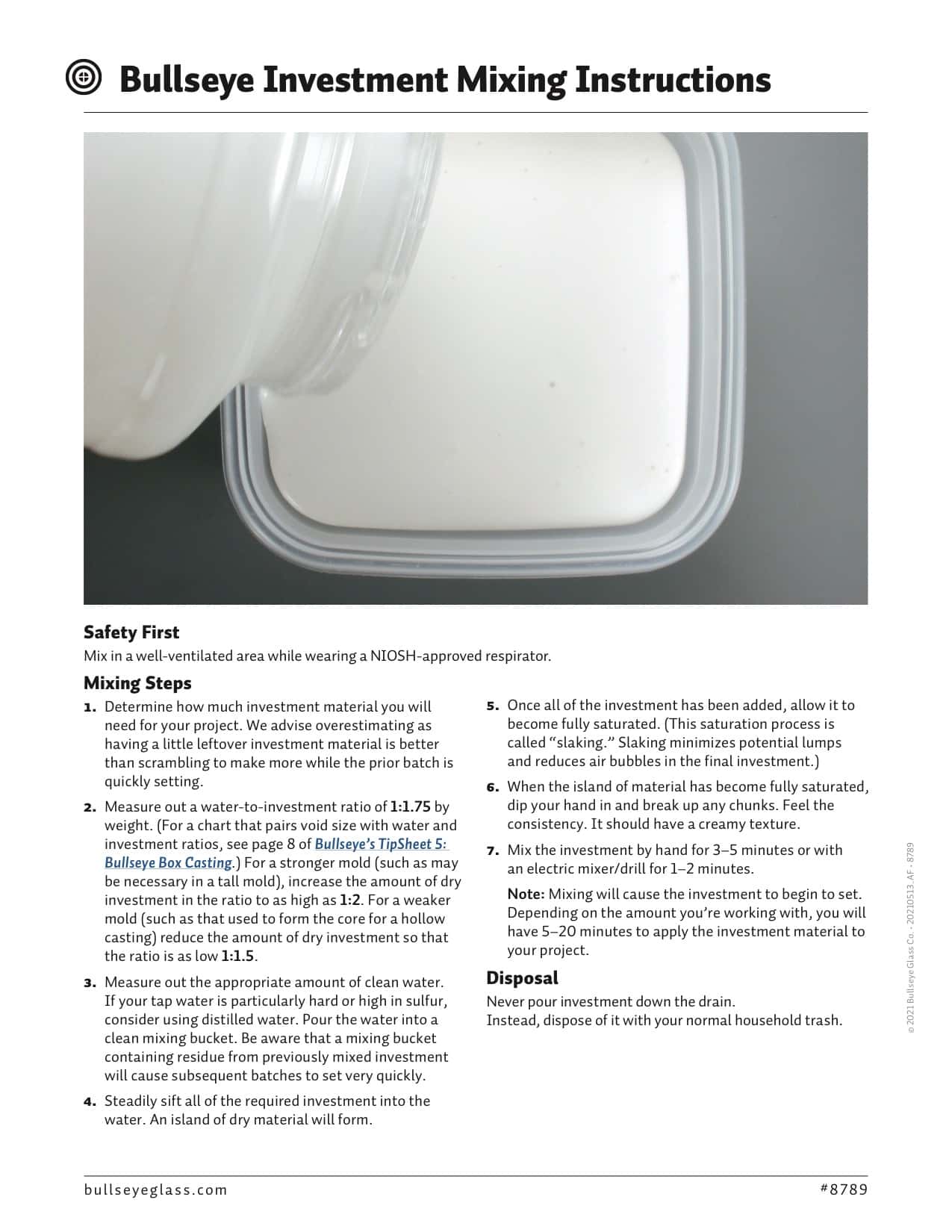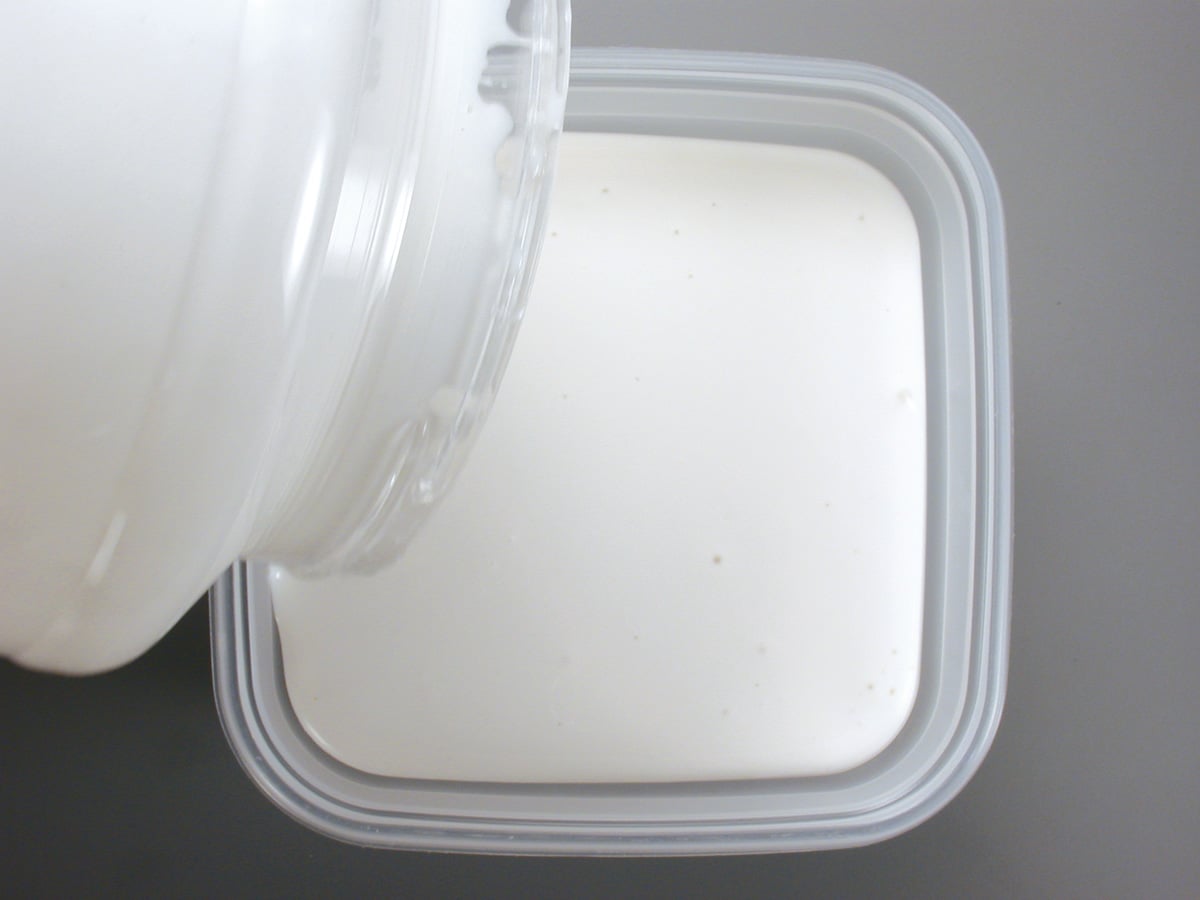Safety First
Mix in a well-ventilated area while wearing a NIOSH-approved respirator.
Mixing Steps
- Determine how much investment material you will need for your project. We advise overestimating as having a little leftover investment material is better than scrambling to make more while the prior batch is quickly setting.
- Measure out a water-to-investment ratio of 1:1.75 by weight. (For a chart that pairs void size with water and investment ratios, see page 8 of Bullseye’s TipSheet 5: Bullseye Box Casting.) For a stronger mold (such as may be necessary in a tall mold), increase the amount of dry investment in the ratio to as high as 1:2. For a weaker mold (such as that used to form the core for a hollow
casting) reduce the amount of dry investment so that the ratio is as low 1:1.5. - Measure out the appropriate amount of clean water. If your tap water is particularly hard or high in sulfur, consider using distilled water. Pour the water into a clean mixing bucket. Be aware that a mixing bucket containing residue from previously mixed investment will cause subsequent batches to set very quickly.
- Steadily sift all of the required investment into the water. An island of dry material will form.
- Once all of the investment has been added, allow it to become fully saturated. (This saturation process is called “slaking.” Slaking minimizes potential lumps and reduces air bubbles in the final investment.)
- When the island of material has become fully saturated, dip your hand in and break up any chunks. Feel the consistency. It should have a creamy texture.
- Mix the investment by hand for 3–5 minutes or with an electric mixer/drill for 1–2 minutes. Note: Mixing will cause the investment to begin to set. Depending on the amount you’re working with, you will have 5–20 minutes to apply the investment material to your project.
Disposal
Never pour investment down the drain.
Instead, dispose of it with your normal household trash.


